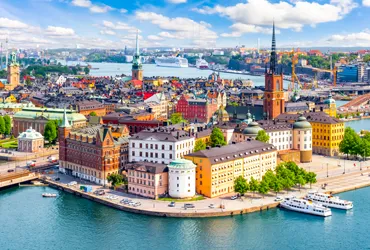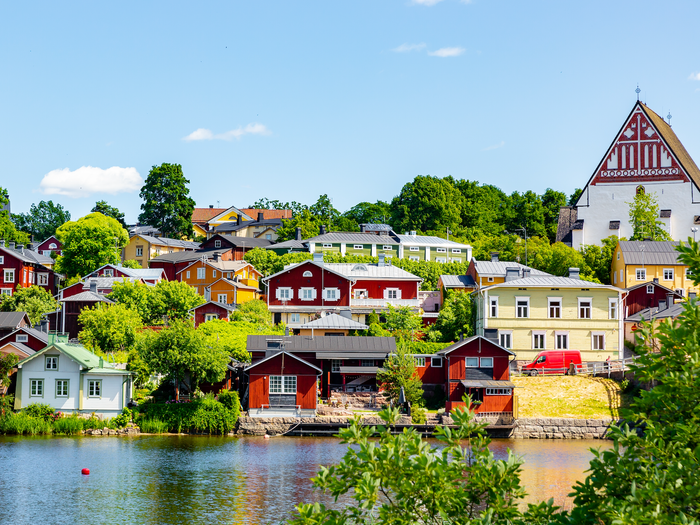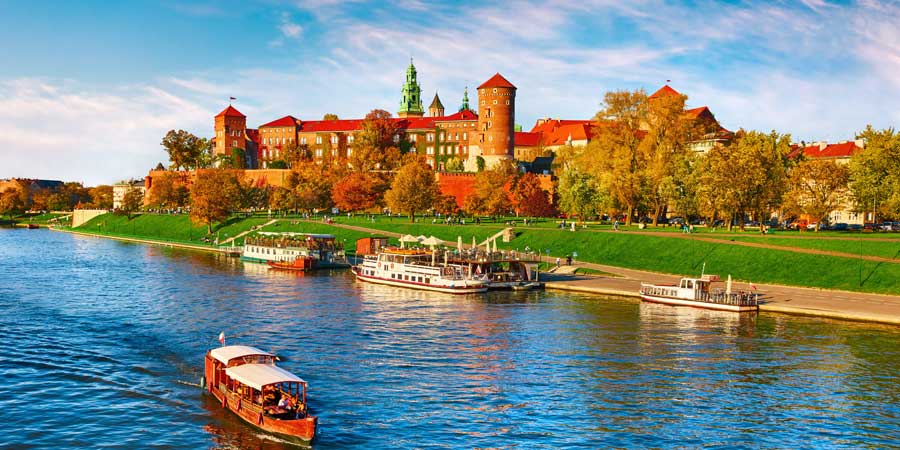

All about Swiss Education
Switzerland's outstanding universities and decentralized education system provide abundant opportunities for international students to excel, ensuring a warm and supportive environment for their academic pursuits. With a strong focus on fields such as hospitality, medical sciences, and PhD programs, studying in Switzerland presents an excellent choice for students seeking a top-tier education on an international stage.
Switzerland is home to numerous highly ranked universities, boasting an ideal student-to-faculty ratio, exceptional research facilities, and affordable tuition fees. The fees for each university can vary, set by the specific region, generally ranging from 200 to 850 CHF per semester.
Switzerland is a top choice for Indian students studying abroad. To study in Switzerland, Indian students must meet the criteria set by each educational institution and obtain the necessary study visa. The country is safe and hosts renowned multinational firms, promising a solid job market. It also offers ample scope for research and innovation.
Students must comprehend the anticipated study expenses, admission criteria, visa procedures, leading universities, and essential PR aspects to embark on their academic journey in Switzerland.
Reasons to study in Switzerland
Switzerland's education landscape offers diverse programs and welcoming opportunities for international students. Here are several compelling reasons why international students select this as their study destination:
- Switzerland's education system is flexible, offering various possibilities for international students to pursue undergraduate, postgraduate, and PhD programs at prestigious Swiss universities.
- Renowned institutions like ETH Zurich, University of Zurich, University of Lausanne, University of Geneva, University of Bern, and others are globally recognized for their academic excellence.
- Education at Swiss institutions is available in German, French, and English languages, eliminating the necessity for English language proficiency tests for Indian students in most universities.
- Swiss universities generally do not require IELTS scores, enabling international students with basic English skills to apply without this exam.
- Two Swiss cities are featured among the Top 20 Best Student Cities in the QS Rankings 2023.
- Switzerland houses 15 Fortune 500 companies, offering international students opportunities for a successful career.
- Switzerland is acclaimed as the most innovative country according to the Global Innovation Index 2022.
- A significant portion of the country's total population comprises international students who have settled in Switzerland after completing their courses, signifying ample opportunities for permanent residency and employment.
- Switzerland provides partial and full funding opportunities for international students through scholarships such as ETH Zurich Excellence Scholarships and Swiss Excellence Scholarships for Foreign Students.
- The country warmly welcomes international students, fostering a vibrant lifestyle and a multicultural environment conducive to integration with the Swiss way of life.
Student Visa Types
The National Visa (D-type) is crucial for Indian students aspiring to study in Switzerland. Students planning to remain in the country for three months or more require a D-category visa. Additionally, students can opt for a C Visa for shorter durations, such as summer schools, seminars, or language courses lasting up to three months.
Indian students are required to schedule a visa interview through an online application. Subsequently, the application and biometric formalities occur at the visa application centre, possibly involving the submission of biometric data. The ultimate stage is a visa interview that determines the acceptance of the study visa application. The approximate visa fee for Indian adults is 79.91 CHF.
Educational System
Switzerland adheres to the Bologna Education Scheme, utilizing the European Credit Transfer and Accumulation System (ECTS credits). This framework allows international students to transfer their educational qualifications back to their home institutions. International Students have the following options for pursuing higher education:
Bachelor's Degree:
This full-time undergraduate program typically spans three years. However, specialized fields such as medicine and information technology might extend to five years. Swiss Bachelor's degrees offer a range of major and minor optional subjects. The program requires a total of 180 ECTS credits for completion.
Master's Degree
The Master's program is typically completed within a two-year duration. A master's degree is a prerequisite for a Ph.D. or doctoral program, necessitating 90–120 credit hours for completion.
Master of Advanced Studies (MAS)
A postgraduate degree lasting 1-2 years, usually involving independent study, coursework, and a master's thesis. Completion typically requires 60–120 ECTS credits.
Doctorate Degree
Completion of a doctorate typically spans 3 to 5 years, mandating the acquisition of 240 ECTS credits.
The Swiss academic year runs from September to May, comprising two semesters annually. Students can choose from Italian, German, and English language courses.
Leading Universities in Switzerland
In Switzerland, universities dedicated to applied sciences and arts, fundamental research, and teacher education each play a distinct role in the country's education, research, and innovation sectors.
| Institution Type | No. of Universities | Description |
|---|---|---|
| Universities (UNIs) | 12 | Research institutions offering Bachelor's, Master's, and Doctorate degrees. |
| Universities of Teacher Education | 20 | Offer programs in teaching for various educational levels and special needs education. |
| Universities of Applied Sciences and Arts | 9 | Offer practice-based Bachelor’s and Master’s degree programs. |
Popular Universities
Here's the list of popular Swiss Universities frequently ranked in the QS World University Rankings:
- EU Business School
- University of Lausanne
- ETH Zurich
- The FHNW University of Applied Sciences and Arts Northwestern Switzerland
- University of Basel
- University of Geneva
- University of Neuchatel
- American University of Switzerland
- University of Zurich
- University of Bern
- Swiss Federal Institute of Technology, Zurich
- University of St. Gallen
- University of Fribourg
Popular Courses
Here are some sought-after courses for international students in Switzerland:
- Hotel & Hospitality Management
- Business Management
- Banking & Finance
- International Law
- Applied Mathematics
- Artificial Intelligence
- Interdisciplinary Sciences
- Quantitative & Systems Biology
Average Tuition Fees
Here's a table highlighting popular courses along with their average tuition fees and durations:
| Program | Duration | Average Tuition Fee/ Semester |
|---|---|---|
| BA Hons (International Hospitality Management) | 2–3 years | 12,000 CHF |
| MSc Mechanical Engineering | 2 years | 1,200 CHF |
| MBA (Global Banking & Finance) | 3 terms | 12,600 CHF/term |
| MSc Artificial Intelligence | 4 terms | 4,000 CHF |
| BBA | 3 years | 13,500 CHF |
Eligibility for Studying in Switzerland
- Academic Requirements:
- A 10+2 education from a recognized board is mandatory for pursuing an undergraduate diploma or a bachelor's degree.
- For a PG diploma or Master's degree, a relevant full-time bachelor's degree with good scores is required.
- English Language Proficiency:
- An English language proficiency test in Switzerland is not mandatory, but some universities may require an IELTS score.
- Statement of Purpose (SOP) and Letter of Recommendation (LOR):
- An SOP is a compulsory requirement for admission, outlining the student's purpose and goals.
- At least two LORs are required for access to Swiss universities.
- Documents:
- Documents like transcripts, passports, certificates, SOP, and LOR are crucial for admission eligibility.
- Standardized Test Scores:
- GRE and GMAT scores are compulsory for admission to Swiss universities, especially for top-ranked institutions.
- Work Experience:
- Having two to three years of work experience can be an added advantage for admission.
- Some courses like MS, MBA, and specific post-graduation courses may require prior work experience.
Overall Expenses for International Students
- Tuition Fees
In Switzerland, the tuition fees are relatively affordable compared to other European countries. The cost of tuition depends on whether you're attending a public or private university. Public universities like the University of Lausanne, ETH Zurich, University of Basel, and University of Applied Sciences and Arts Northwestern Switzerland offer more affordable tuition. However, private Swiss universities tend to be more expensive. The tuition cost varies based on the type of course and level of study. Here's an overview of the average tuition fees per semester at public universities:
- For Bachelor's degree programs, the cost ranges from 700 to 3,500 CHF.
- For Master's degree programs, the cost ranges from 700 to 2,000 CHF.
- Cost of living
Living costs for Indian students in Switzerland differ based on the city and its location. Typically, an Indian student may require around 2,250 CHF per month to cover accommodation, transportation, food, and utility expenses.
Living cost based on Switzerland's most student-friendly cities:
| Factors | Average Monthly Expenditure (CHF) |
|---|---|
| University Accommodation | 400 – 750 |
| Private Accommodation | 1,500 – 2,500 |
| Shared Flats & Rentals | 650 – 11,205 |
| Food | 500 |
| Healthcare | 400 |
| Travel | 100 |
Student Visa Application Process
- Receive Acceptance Letter: Obtain a letter of acceptance from the desired Swiss university.
- Contact the Swiss Consulate: Initiate the visa application process through the consulate.
- Complete Visa Application Form: Fill out the Swiss student visa application form and schedule an appointment at the Swiss Visa Application Center.
- Compile Essential Documents: Gather all the necessary documents for the visa application.
- Document Verification and Submission: Thoroughly review and submit all documents at the Visa Application Center. Additionally, pay the required Swiss student visa fees.
- Collect Acknowledgement Receipt: Upon submission, collect the acknowledgement receipt. Then, wait for the visa approval.
- Visa Processing Time:
- Short-Term Visa (Less than 3 Months): Typically takes 10–15 days for processing.
- Long-Term Visa (National D Visa): The processing time for a National D student visa can extend up to 10 weeks.
Following these steps and meeting the requirements will facilitate the Swiss student visa application process. Indian students must also have adequate funds to cover tuition and living expenses for the initial year of their stay in the country.
National D Visa
Please prepare and submit all the below-mentioned documents for a thorough National D Visa application. Students should submit three application forms (original and two copies) of the below-mentioned documents:
- Valid national passport: It should have at least three months of validity after the scheduled return, with at least two blank pages.
- Passport Photos: Provide four passport-sized photos
- Visa Application Forms: Submit three visa application forms (original and two sets of copies).
- Cover Letter: Include reasons for studying in Switzerland, future plans, benefits from the studies, and a commitment to leaving the country after studies.
- Proof of Sufficient Funds: Provide evidence of financial means to support the stay in Switzerland.
- Medical Travel Insurance Copy: Include a copy of medical travel insurance.
- Detailed Letter: Explain the reasons for studying in Switzerland, the intended arrival, and the duration of stay.
- No Objection Certificate: Obtain a certificate stating no objection from the university.
- Proof of University Enrollment: Provide documentation verifying enrollment in the university.
Various Scholarship schemes in universities
Swiss universities provide a variety of scholarships, including both full-time and partial scholarships, to assist high-achieving students. These programs may cover tuition fees, health insurance, housing allowances, monthly stipends, and airfare.
These scholarships are available for students pursuing Bachelor's, master's, or PhD degrees from recognized educational boards. International students, researchers, and scholars may receive full financial support for their research and development work. The scholarships for talented students aid them in covering various expenses like tuition, health insurance, housing, monthly stipends, and travel costs.
Students pursuing Bachelor's, master's, or PhD degrees from accredited educational boards can apply for these scholarships. Furthermore, international students, researchers, and scholars are eligible for comprehensive financial assistance to support their research and developmental efforts.
Notable Scholarship Programs Include:
- Graduate Institute Geneva Scholarships
- University of Geneva Excellence Masters Fellowships
- IMD MBA Scholarships
- University of Lausanne Masters Grants for Foreign Students
- Prima Grants
- University of Zurich Scholarships for PhD Candidates
- Nestle MBA Scholarships for Women from Developing Countries
- International Postdoctoral Fellowships
- EPFL Excellence Scholarships
- Swiss Government Excellence Scholarships
These scholarships present opportunities for students at various levels and diverse backgrounds to pursue their education and research in Switzerland.
Is IELTS mandatory?
No, most Swiss institutions waive the IELTS requirement for specific bachelor's and master's degree programs if students fulfill academic entry standards. To facilitate studying in Switzerland, there are also scholarship and internship opportunities accessible without needing IELTS.
Renowned Swiss Universities such as the University of Geneva, University of Bern, University of Lausanne, and University of Basel, among others, do not mandate IELTS for admissions.
Multilingual nation
Switzerland has four official languages: Romansh, French, German, and Italian. The population tends to be multilingual, primarily influenced by the region they grew up in.
The country is divided into four primary communities based on these official languages, with the German-speaking community being the most extensive.
Despite the various languages, international students can communicate in English easily. Swiss residents are usually proficient in English, widely used as the primary teaching language. Additionally, pursuing master's and PhD programs in English at Swiss universities is highly valuable.
Diverse Culture
Switzerland's unique culture is shaped by its geographical closeness to Germany, France, Italy, and Austria. This fusion has created a distinct Swiss identity celebrated for its rich musical heritage, including traditional folk music such as alphorn melodies and landler rhythms. The country embraces instruments like the violin and guitar, adding to its musical richness.
Furthermore, Switzerland is a haven for art lovers, boasting over 1000 museums that attract avid explorers. The country's renowned craftsmanship shines in its watchmaking industry, presenting luxury brands like Rolex, Tissot, and Patek Philippe. Swiss culture also delights the world with its sumptuous cuisine, particularly its globally acclaimed luxury chocolates from brands like Lindt, Cailler, Frey, Nestle, and Toblerone.
In conclusion, while Switzerland tends to have higher living expenses compared to other European nations, the educational costs are relatively reasonable. By embracing shared accommodation and managing living costs wisely, international students can comfortably navigate their studies while savouring the enriching and rewarding Swiss experience.
Here's a brief overview of international students considering higher education in Switzerland.
- Cost of Study (Approx.): Ranges from 200 to 850 CHF per semester
- Cost of Living (Approx.): 2,000 CHF per month
- Intakes: Available in Autumn/Fall and Spring
- Popular Courses: Business Management, Hotel and Hospitality Management, Applied Mathematics, Banking and Finance,
- Language of Instruction: German, French, and English
- Tests Required: Language Proficiency Tests (English, German, or French), as well as GRE, GMAT, etc.
- Types of Visas: C-VISA (for stays over three months) and D-VISA (for stays under three months)
- Best Student Cities: Zurich and Lausanne


















